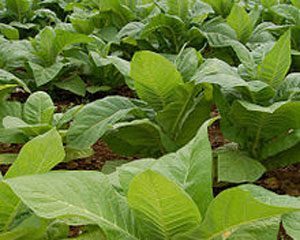
BY FIDELITY MHLANGA
A STAGGERING 99% of the tobacco crop produced annually by Zimbabwean farmers is shipped to the international markets without being processed, the Tobacco Industry and Marketing Board (Timb) revealed last week, as it pushed for the establishment of more manufacturing firms to unlock value for the fragile economy.
Over half of the US$748 million earned by golden leaf farmers last year was pocketed by contractors, who are mainly big foreign corporations that repatriate the hard currency back to their countries, Standardbusiness was told.
Zimbabwe produced 190 million kg of tobacco last season.
But there should be no reason to celebrate as, based on the Timb data, a tiny fraction of this was processed locally.
The rest was exported for processing to create downstream industries, jobs and tax revenues for importing countries, mostly in Asia, an analysis of data by Timb outgoing CEO Andrew Matibiri revealed.
But even if these low volumes are processed in Zimbabwe, there has been a growing list of foreign firms that have invested into cigarettes production compared to local enterprises.
“At the moment only 1% is made into cigarettes,” said Matibiri.
- Chamisa under fire over US$120K donation
- Mavhunga puts DeMbare into Chibuku quarterfinals
- Pension funds bet on Cabora Bassa oilfields
- Councils defy govt fire tender directive
Keep Reading
“The Zimbabwean situation is very unique. Our population at the moment is 15 million and the majority of people live in rural areas.
“They don’t really buy cigarettes from a shop or from a taxable formal market. They roll their own tobacco and smoke.
“The local market is very small compared to other tobacco producing countries like our competitor, Brazil.
“They produce 660 million kilogrammes. And often they use locally for them to support their population.
“China produces two million kgs and consumes all of it. We are gifted in terms of the climate and skill, research facilities and institutions to support production.
“It appears that we are really a production country, we produce for the international markets.
“I think we need to do more because value-added tobacco earns more foreign currency,” he added.
A study conducted by the African Institute for Agrarian Studies a few years ago showed that corporations that import and process tobacco earn 14 times more than the primary producers in Zimbabwe.
This means Zimbabwe, one of the world’s biggest producers of high quality tobacco, could only be exploiting its resource and destroying the environment to prop up the recipients of the output in advanced countries.
Swaths of delicate forests have been decimated yearly in the past decade as farmers try to find wood for drying their tobacco before shipping to auction floors.
The destruction of forests has reaches tipping point, with Forestry Commission of Zimbabwe data indicating that if the rate of tree cutting for tobacco drying is not reduced, the country could wipe out its forests within the coming 35 years.
Matibiri said there was research that was being undertaken to see if there could be alternative uses of tobacco in the region.
“There have been experiments done in the region for production of jet fuel and Zimbabwe was left off for one reason or another. We are keeping a close watch on the outcome of those experiments,” he said.
These handicaps are not peculiar to tobacco farmers only.
The bulk of minerals extracted annually in Zimbabwe find their way to South African and overseas processing facilities where they are processed and marketed at higher prices.
Government has been pushing platinum mining firms to establish final refinery facilities in the country, but a decade since the campaign started, Zimbabwean matte is still exported to the Bushveld Complex in South Africa, where final processing is undertaken.











